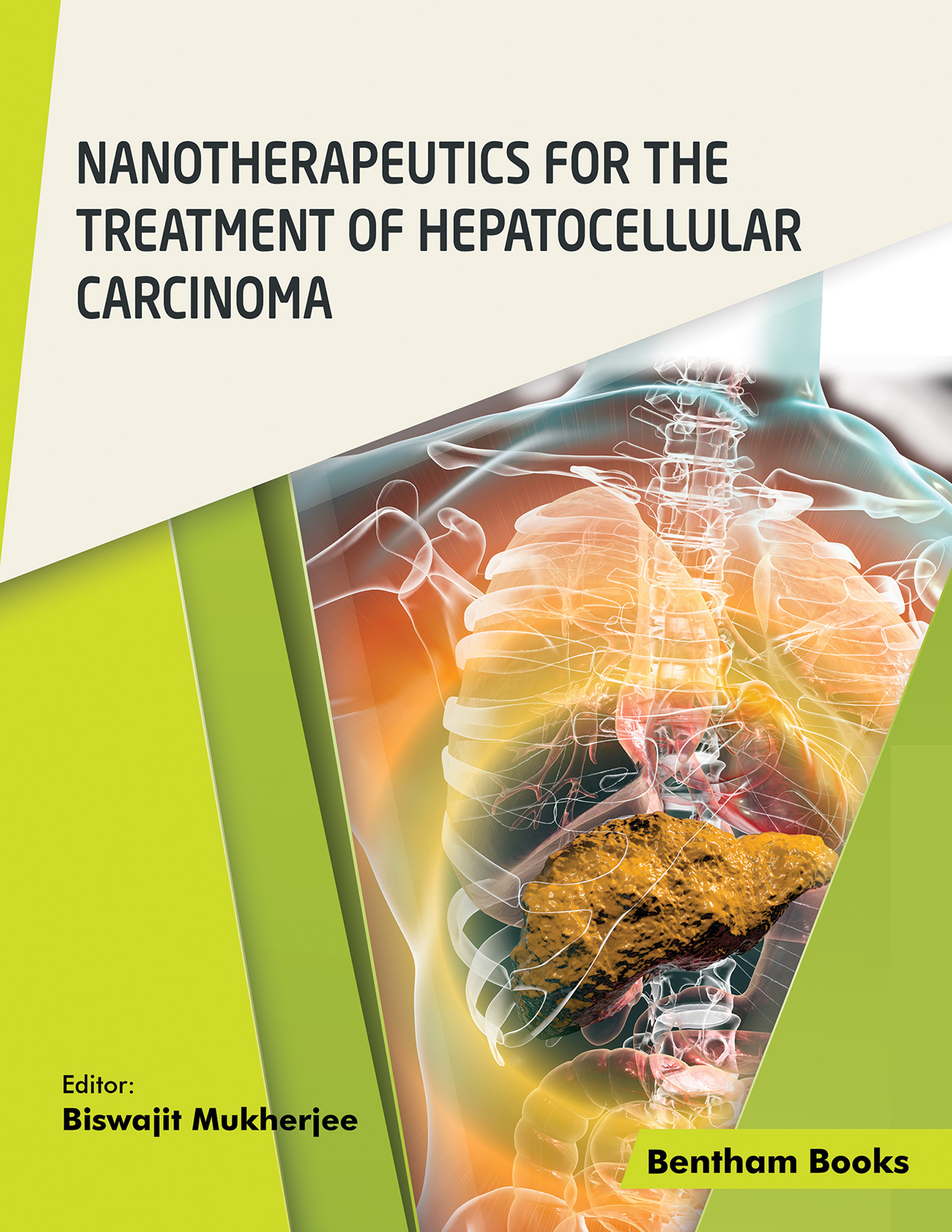Future Direction of Nanotherapy in the Management of Hepatocellular Carcinoma

- Authors: Biswajit Mukherjee1, Laboni Das2, Sanchari Bhattacharya3, Apala Chakraborty4, Shreyasi Chakraborty5, Ashique Al Hoque6, Debasmita Dutta7
-
View Affiliations Hide Affiliations1 Department of Pharmaceutical Technology, Jadavpur University, Kolkata 700032, WB, India 2 School of Pharmacy, Techno India University, EM 4, Sector-V, Salt Lake, Kolkata, WB, India 3 Guru Nanak Institute of Pharmaceutical Science and Technology, 157 f, Nilgunj Rd, SahidColony, Panihati, Kolkata, West Bengal 700114, India 4 Department of Pharmaceutical Technology, Jadavpur University, Kolkata 700032, WB, India 5 Department of Pharmaceutical Technology, Jadavpur University, Kolkata 700032, WB, India 6 Department of Pharmaceutical Technology, Jadavpur University, Kolkata 700032, WB, India 7 Department of Pharmaceutical Technology, Jadavpur University, Kolkata 700032, WB, India | Department of Molecular and Human Genetics, Baylor College of Medicine,Houston, Texas77030, United States
- Source: Nanotherapeutics for the Treatment of Hepatocellular Carcinoma , pp 490-525
- Publication Date: March 2022
- Language: English
Worldwide, hepatocellular carcinoma (HCC) is one of the leading causes of cancer-related deaths among humans. Several conventional therapies, including surgical and non-surgical methods such as liver transplantation, radiation, and chemotherapy, have been explored to combat this disease and improve the patients' quality of life. However, due to poor diagnosis of the disease, drug toxicity issues, and difficulties related to liver transplantation, scientists search for novel techniques to treat HCC that ensure targeted drug delivery and help in diagnosing the disease. Nanotherapeutics are a new trend in drug discovery and medicine which deals with nano-sized formulations loaded with various types of materials such as drugs, antibodies, aptamers, genes, viruses, etc., and targeted delivery. Moreover, controlled release of the materials can be achieved through modifying their external and internal structures as per requirement. Drug delivery through nano theranostics has taken a new turn as the diagnostic tools tagged with the nano-architectures ensure diagnosis and treatment simultaneously. Nanotheranostics have significant application in the identification of cancer progression through continuous monitoring and treatment of cancer. In this review, we will discuss different beneficial effects and applications of nanotherapeutics against HCC. Along with that, different upcoming strategies, such as personalized medicine, layer-by-layer technologies, implant theory, 3D printing technology, nanorobots, nanocrystals, nano-chips, etc., will be discussed here, which may pave the path towards successful diagnosis and treatment of HCC to improve the health of the patients.
-
From This Site
/content/books/9789815039740.chap12dcterms_subject,pub_keyword-contentType:Journal -contentType:Figure -contentType:Table -contentType:SupplementaryData105

